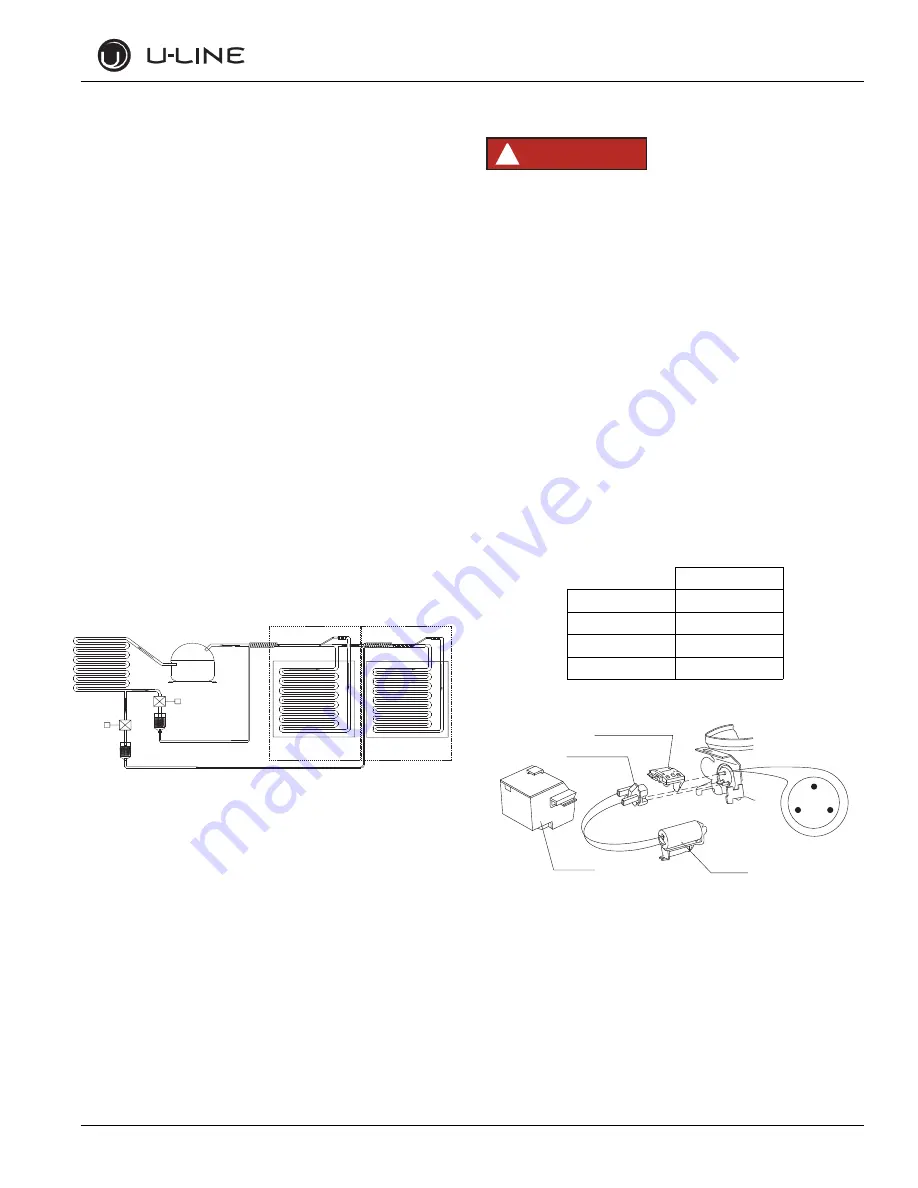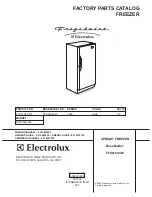
u-line.com
27
Troubleshooting
Compressor Information
Cooling process
Refrigerant is pumped from the compressor to the condenser as a
high pressure, high temperature vapor.
As the refrigerant cools in the high pressure condenser, the vapor
condenses to liquid. During this phase change, a great amount of heat
is rejected with the help of the condenser fan.
The liquid then flows through the open solenoid valve to the dryer
where it is strained and filtered.
From the dryer, the refrigerant flows through the capillary tube which
meters the liquid refrigerant to the evaporator.
The pressure of the refrigerant is reduced to the evaporating or low
side pressure.
The reduction of pressure on the liquid refrigerant causes it to boil
or vaporize until it reaches saturation temperature. As the low
temperature refrigerant passes through the evaporator coil, it
continues to absorb a lot of heat, causing the boiling action to
continue until the refrigerant is completely vaporized. It is during this
phase that the most heat is absorbed (the cooling takes place) in the
refrigerator.
The refrigerant vapor leaving the evaporator travels through the
suction line to the compressor inlet. The compressor takes the low
pressure vapor and compresses it, increasing both pressure and
temperature. The hot, high pressure gas is pumped out the discharge
line and into the condenser. The cycle continues.
Compressors
DANGER
!
Electrocution can cause death or serious injury. Burns from hot
or cold surfaces can cause serious injury. Take precautions when
servicing this unit.
• Disconnect the power source.
• Do not stand in standing water when working around
electrical appliances.
• Make sure the surfaces you touch are not hot or frozen.
• Do not touch a bare circuit board unless you are wearing
an anti-static wrist strap that is grounded to an electrical
ground or grounded water pipe.
• Handle circuit boards carefully and avoid touching
components.
To measure the start winding resistance, measure across the C and S
pins.
To measure the run winding resistance, measure across the C and R
pins.
Also check S to R and you should get the sum of the run and start
windings.
To ensure the windings are not shorted, check the S and R to ground.
EMX20CLC
Voltage
230VAC
Frequency
50Hz
Start Winding
34.9 ohms
Run Winding
47.8 ohms
C
S
R
OVERLOAD PROTECTOR
STARTING RELAY
CAPACITOR (IF EQUIPPED)
RELAY COVER
CAPILLARY TUBE
SOLENOID VALVE
SOLENOID VALVE
DRYER
CONDANSER
COMPRESSOR
EVAPORATOR
DRYER
EVAPORATOR
CAPILLARY TUBE
LEFT ZONE
RIGHT ZONE




































